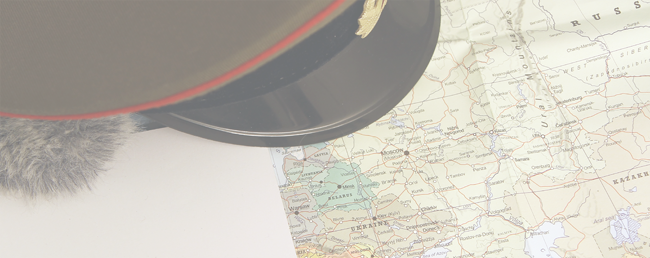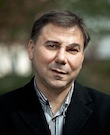Interview with Ivan Krastev: “The disintegration of Soviet Union is only ending now”
Ivan Krastev, leading expert on the post-Soviet space, believes that the disintegration of the Soviet Union did not end in 1992. In our interview, he explains why the process is only ending now.

 Ivan Krastev.
Ivan Krastev.
There is a long history of unresolved conflicts in Eastern Europe, the Caucasus and Central Asia. Political scientist Ivan Krastev, a long-time member of the board of the European Council on Foreign Relations chaired by President Martti Ahtisaari, agreed to give us his take on why the past 20 years have been so difficult.
Many of the Eastern European countries have faced significant challenges since the collapse of the Soviet Union. What type of legacy did the Cold War leave them with?
The communist period left different legacies for the countries of the former Warsaw pact. In Central Europe, the era did not question the nature of the state and its borders. Conversely, Eastern Europe became the biggest state construction site that Europe had seen since World War I.
The challenges faced in the post-Soviet space were not simply how to democratise or achieve a market economy, but how to build an effective and legitimate state. New states had to be created, some from borders that only existed on paper. It was a huge problem for some of the Central Asian countries, which didn’t have any history of a modern state. It was a problem for Russia itself because it had never been anything but imperialist in its history. Also in places like Belarus and Ukraine, building a state identity was very difficult.
Why do these countries continue to struggle with their economies and basic governance structures?
We have state failure in many places in the post-Soviet space. The state normally guarantees you a notion of a future and longer-term development. But the elite that came to power in the Eastern European countries was short-sighted, basically trying to get as much as they could for themselves, and not investing in their own countries but channelling all the money outside. The population was not only suffering in economic terms, but they didn’t have any trust in the elite. This led to very weak governance.
Even when the situation started to improve in economic terms, for example in Russia, this was not due to better governance but the increasing oil and natural resources prices. So, paradoxically, for all of these 20 years, the relationship between the elite and the people has never been based on accountability, except for the Baltic States.
How would you describe the current situation? What is going on?
I believe that the disintegration of the Soviet Union did not end in 1992 – it started then. What we’re seeing is the end of the process. It is going to be a very difficult period. While it started with the notion that the borders of the post-Soviet space were going to be recognised, it now ends with the idea that these borders should be revised.
THE DISINTEGRATION OF THE SOVIET UNION DID NOT END IN 1992 – IT STARTED THEN.
One of the reasons for this next stage is that some of the previous post-Soviet countries now identify themselves as pre-EU countries, such as Moldova, Georgia or Ukraine. Simultaneously, for the first time in 20 years, the most powerful country in the region has revised the principle on which the peaceful disintegration was based; that the Soviet-made borders would remain. The failure of the Russian state to modernise led to their new agenda where the state is defined by gaining territory rather than competitiveness in the global market.
Do you see that the disintegration could happen in a peaceful way?
I believe that what is happening now is the end of a status quo that was unviable. Thus, the changes can be more positive than they may seem at the moment.
Also, earlier there was only one major actor in the post-Soviet space. Now, in addition to the EU playing a major role, we’re probably going to see a third important player in this space as a result of Russia’s decision to open up to China. Chinese money and influence is going to be very important when states are built.
In the end, the most important question is how the succession is going to take place in many of these countries where the political regimes are built around certain personalities. It’s impossible to predict at this point if we’re going to see positive political changes or if this will only lead to more insecurity and chaos.
To our last question of whether he dares to guess about the coming years, Krastev just laughs: “It’s safe to say that they’ll be good for some and bad for others.”
Ivan Krastev is a Bulgarian political scientist and the chairman of the Centre for Liberal Strategies, a research and analysis NGO. He is also a permanent fellow at the Institute for Human Sciences in Vienna and a founding board member of the European Council on Foreign Relations.
This article was first published as part of CMI’s Annual Report 2014-2015. The report is available here as PDF and here as a web version.